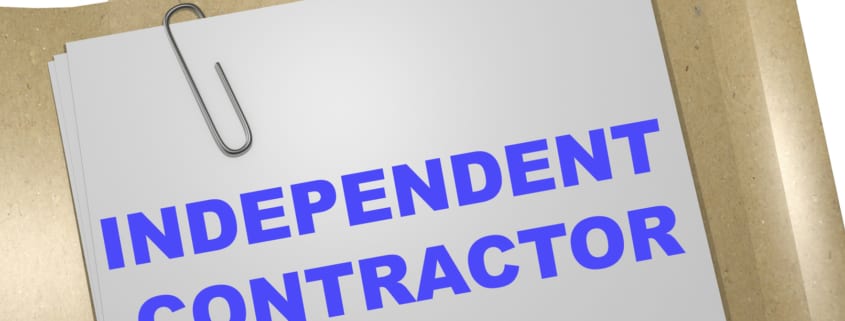What Business Insurance Do Independent Contractors Need?
There will probably always be a tort law reform discussion within the United States. One side of the argument believes its far too easy to enter into litigation, while the opposing side believes the current system is fair. Regardless of where you fall along this spectrum, if you are a small business, or better yet, 3rd party independent contractors, you will surely want to make sure you are properly covered in this litigious environment we find ourselves in.
How Does Insurance Work for Independent Contractor?
The modicum of ‘fair’ is often subjective; especially when the arena is the inside of a court. Think about the consulting advice you provided to your client, which resulted in a month of lower revenues. Was the cause your advice, or normal market fluctuations? Are you liable in the court of law? If so, how much (in terms of dollar amount) are you responsible for? This picture becomes a bit clearer when the service you provide is tangible. For example, let’s say you install a rooftop deck for a client. Six months later, the roof begins to leak. Was the leak caused by your faulty work, or was it from normal wear and tear? There are literally thousands of scenarios where you could find yourself, or company, being served court papers due to ‘perceived’ negligence. In such unfortunate cases you’ll want protection, even if you feel there’s no chance you have done anything wrong. Below is a list of core coverages you’ll want to make ensure you obtain if you’re a small business or 3rd party independent contractor.
What Kind of Insurance Do I Need as an Independent Contractor
1. BOP (Business Owners Policy)
This is essentially the catch all policy for any small business. It is composed of three separate coverages that could in fact be purchased individually (monoline), but are packaged because they are so important for most businesses. In most cases its more cost effective to simply purchase these coverages in package form (Business Owners Policy) as opposed to purchasing them on their own. All three coverages form the foundation of any insurance-related protection strategy.
- Commercial Property Insurance: coverage for your company’s building and any property or contents within the building, either owned by the company or being held for a 3rd party.
- Business Interruption Insurance: coverage for the loss in revenue due to a named peril such as fire, that requires the company to halt operations. Coverage also extends to extra expenses incurred if the company chooses to operate from a different location.
- General Liability Insurance: coverage for any legal responsibility the company incurs for damage/harm inflicted to others. These damages would have occurred during the normal process of operations and could take the form of bodily injury or property damage due to faulty products or services provided.
2. Professional Liability Insurance (E&O Insurance)
Although this insurance is not included in BOP packages, its equally important. Many companies and 3rd party independent contractors provide services that aren’t as tangible as what a contractor provides. For those consultants of sorts, this coverage is a necessity. Professional Liability insurance, often call E&O Insurance, provides coverage for you or your company as it relates to services you’ve provided that may have caused your client to endure financial loss due to your mistakes (errors), or negligence to perform a certain type of service (omission).
Many smaller companies and 3rd party independent contractors truly require liability coverage as they typically work from the road or out of their home. Once a claim from one of your customers reaches the courts, the ultimate judgement is out of your hands. Thus, you can be relatively sure you have done nothing wrong, however, if you’re found legally responsible, you will need to cover the stated damages. In such a scenario, you would prefer that your insurance kicks in, in lieu of paying out of pocket.
What Should You Keep in Mind as Customers?
Although we have approached this topic from the perspective of the individual providing the services, note that it is just as important for customers to ensure that whomever they hire has proper coverage. Neither party wants a scenario that ends in the courtroom, however, its better to be prepared. Having an understanding that the 3rd party independent contractor you’ve chosen to remodel your kitchen, or help you build your company’s website, has adequate insurance coverage should the process end in damage to your property, or loss of income!
Yes, we live in a day and age whereby many disagreements are resolved in the courtroom. As such, make sure you or the 3rd party independent contractors you are hiring is adequately protected. If you want to know more business insurance coverage, please go to EINSURANCE.com.

 EINSURANCE
EINSURANCE EINSURANCE
EINSURANCE EINSURANCE
EINSURANCE